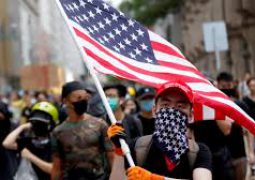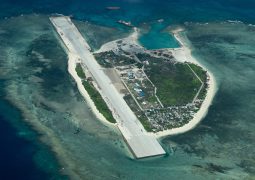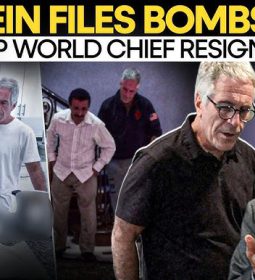A Presidential Scandal Transfixes South Korea
SEOUL—South Korean President Park Geun-hye grew up with few close friendships, reared in the gilded cage of the presidential palace as the daughter of a military dictator.
Now, one friendship Ms. Park does have has imperiled her presidency.
The friend, the daughter of a cult leader who once claimed to speak with Ms. Park’s murdered mother, sought to enrich herself through ties to the presidential office, South Korean prosecutors have alleged in an extortion indictment. The friend also received access to classified presidential policy documents, they say.
The snowballing political drama is paralyzing the government of South Korea, a close U.S. ally, at a time when the Obama administration considers North Korea and its increasingly aggressive nuclear strategy to be the top national security priority for the next administration.
Prosecution documents reviewed by The Wall Street Journal say that foundations set up by the president’s friend, a 60-year-old woman named Choi Soon-sil, allegedly used her presidential ties to wrest millions of dollars in donations from Korean conglomerates. Prosecutors have raided most of South Korea’s biggest business groups seeking evidence. Some of the money, prosecutors believe, went to pay for Ms. Choi’s affluent lifestyle and her daughter’s equestrian aspirations.
Both Ms. Park and Ms. Choi deny the accusations. The president, in a tearful televised statement this month, disputed colorful reports in the Korean press that include shamanistic rituals supposedly held in the presidential office. Such claims are a “house of fantasy,” Ms. Park’s lawyer said.
The denials haven’t stemmed a clamor for her resignation. Five mass rallies in five weeks have demanded the president’s ouster, with organizers estimating over a million protesters gathered in Seoul on Saturday. In surveys, Ms. Park’s approval rating has sunk to 4%. One poll showed that 80% of South Koreans favor impeaching her.
 ENLARGE
ENLARGEOpposition parties say they will push for an impeachment vote by early December if Ms. Park doesn’t step down. She has given no indication she will, though she has offered to share power with a new prime minister suggested by the opposition.
Even if she survives the tumult, Ms. Park’s diminished political authority presents risks for the U.S. and an early foreign-policy challenge for President-elect Donald Trump. The U.S. relies on close ties with Seoul to manage dangers presented by a bellicose North Korea. The U.S. has around 28,500 troops based in South Korea.
Ms. Park wants to deploy a sophisticated U.S. missile system next year to defend against North Korea’s advancing nuclear-weapons program. Opposition leaders, by contrast, put priority on closer ties with China, which strongly disapproves of the missile-shield idea, at a time when other Asian countries such as the Philippines and Malaysia are tilting toward Beijing. Ms. Park’s domestic opponents also seek to break with Washington by rolling back the sanctions pressure on Pyongyang.
Public frustrations
The allegations against Ms. Park and Ms. Choi tap into longtime public frustrations that have come to a head during Ms. Park’s time in office, which began in 2013.
Her late father, the long-serving military ruler Park Chung-hee, set South Korea on a path of rapid economic development that made it the envy of other emerging markets. Now, as growth has slowed and jobs have become harder to find, resentment has built up over the way the economy is dominated by giant companies such as Samsung Electronics Co. and Hyundai Motor Co., whose names have come up in the scandal.

South Koreans are weary of allegations of corruption and influence-peddling that have sullied political life, often involving huge corporations and powerful families. Ms. Park, who has never married, ran for president in part by portraying her lack of family as a virtue that would insulate her from scandals plaguing past presidents.
Many South Koreans also are wary of the role unorthodox religious groups play in Korean society. Though largely dominated by mainstream Christian faiths, Korea has been fertile ground for groups led by messianic figures such as the late Rev. Moon Sun-myung’s Unification Church, which preaches that Mr. Moon was the second coming of Jesus Christ.
Ms. Choi has been depicted in the South Korean media as a shamanistic figure who influenced government policy on a wide spectrum of issues. Ms. Park denies any shamanistic influence but has said Ms. Choi did help write several policy addresses.
At one recent protest demonstration, a man named Choi Yong-hyun said he and his wife explained to their small children who were with them that they had come “to punish the queen because she conspired with the witch.” Others derided the country as a “Soon-sil republic” run by Ms. Choi.
Helping to drive Ms. Park’s popularity to what is a record low for a South Korean president is disgruntlement over some of her policies, plus allegations she mishandled the aftermath of a deadly ferryboat sinking in 2014.
The biggest cause involves Ms. Park’s relationship with Ms. Choi—a scandal whose roots are entangled with Ms. Park’s family history.
Ms. Park was just 9 in 1961 when her father seized power in a military coup, inaugurating a two-decade period of economic growth and political repression. Ms. Park led a cloistered life attending Catholic schools and living in the Blue House, the sprawling downtown compound of traditional Korean buildings known for its 150,000 blue roof tiles and immaculate gardens—and for the dozens of police guarding from all approaches. In 1968, North Korean commandos came within a few hundred yards in a failed assassination attempt.
In an autobiography, Ms. Park described the Blue House as “a harsh place, full of things for young children not to do.” She chafed under the constant scrutiny of a life she called “suffocating” compared with those of peers who were doing things like going on blind dates. “Being the ‘president’s daughter’ can look like being a princess, but for the person herself, it can be a prison,” she wrote.
After college in 1974, Ms. Park moved to France to study, where she restricted social interactions with friends to once a week. In her isolation, she wrote, she admired her mother above all, as “the most ideal image of a woman.”
In August that year, a North Korean sympathizer tried to assassinate Mr. Park as he delivered a speech in Seoul, failing but killing Mr. Park’s wife. The 22-year-old Ms. Park rushed home and soon took her mother’s place as South Korea’s first lady. She described the shock of learning of her mother’s death as like being electrocuted.
Shortly thereafter, in the hills of South Korea, a six-times-married Buddhist monk turned quasi-Christian mystic named Choi Tae-minclaimed to have communed with Ms. Park’s dead mother. He introduced himself to Ms. Park, quickly winning her confidence, according to Jeon Ki-young, a close associate of Mr. Choi and the head of the general assembly of the Presbyterian Church of Korea.

Ms. Park stood by her father’s side at state functions, including greeting Rosalynn Carter during U.S. President Jimmy Carter’s visit to Seoul in 1979. Privately, Ms. Park grew increasingly close to Mr. Choi, according to Mr. Jeon.
One evening in October 1979, during dinner in a compound on the Blue House grounds, Mr. Park was shot dead by his security chief. Although the motive remains unclear, one remark by the security chief to investigators afterward was a complaint about the mystic Mr. Choi’s rising influence over Ms. Park.
Ms. Park dropped out of view and studied Mandarin Chinese, among other things, but by all accounts maintained a close relationship with Mr. Choi until his death in 1994. In 1998 she re-emerged in public life, winning a seat as a conservative assemblywoman in her hometown of Daegu in the southeast.
The Roots of South Korea’s Political Crisis
South Korean President Park Geun-hye is embroiled in an influence-peddling scandal that is threatening her political career.
She gained the chairmanship of the party in 2004. Though it won a string of elections under her leadership, her aloof demeanor made her one of South Korea’s most scrutinized, and most inscrutable, political figures.
Ties to the past
When she first pushed unsuccessfully for her party’s presidential nomination, in 2007, Ms. Park’s past ties to the late Mr. Choi became an issue. Opponents depicted her as having fallen under the control of a “Korean Rasputin,” according to a hacked U.S. diplomatic cable from the embassy in Seoul published by WikiLeaks. The cable cited widespread rumors “that the late pastor had complete control over Park’s body and soul during her formative years.”
 ENLARGE
ENLARGEWHEN APPROVAL RATINGS FALL
South Korean President Park Geun-hye’s 4% approval rating is one of the lowest in recent memory for a national leader.
- The approval rating of French President François Hollande also stood at 4% in November, amid concerns about high unemployment and his response to terrorist attacks.
- In August 2015, one year before her impeachment and removal from office, just 8% of Brazilians said the administration of President Dilma Rousseff was good or excellent.
- During the final year of her presidency, in February 2015, Argentina’s Cristina Fernández de Kirchner had a 30% approval rating.
- In the U.S., President Richard Nixon had a 24% approval rating when he resigned from office in August 1974, and President Jimmy Carter’s rating sank to 31% in June 1980 in the midst of the Iran Hostage Crisis.
- President George H. W. Bush saw his approval numbers drop to 29% in summer of 1992 due to public perceptions of a weak U.S. economy.
Choi Soon-sil, the daughter of Mr. Choi, appeared to inherit his influence over Ms. Park. The two women were seen at religious events set up by Mr. Choi. Ms. Park, now 64, has described Ms. Choi as a close friend who helped her get through a difficult time of loneliness after she became estranged from her brother and sister.
“Living on my own, I had no one to help me with the many private affairs that needed taking care of, so I turned to Choi Soon-sil, whom I have known a long time, for help,” Ms. Park said last month.
South Korean prosecutors say that Ms. Choi, who lives in the toniest part of Seoul—and who arrived for questioning in Prada shoes, as duly noted by the Korean press—used her ties to finance a lifestyle of luxury while also insinuating herself deeper into Ms. Park’s political life.
According to the indictment seen by the Journal, in July of last year Ms. Choi received advance word that Chinese Premier Li Keqiang was planning a visit to Seoul, and saw a business opportunity. Ms. Choi used her ties to Ms. Park, the indictment says, to urge the Blue House to create a pair of cultural foundations that could sign agreements with their Chinese counterparts.
According to prosecutors, Ms. Choi named the two foundations Mir and K-Sports and crafted business plans for them. Within months, they had solicited millions of dollars from conglomerates such as Samsung, Hyundai and LG, prosecutors said.
 ENLARGE
ENLARGEProsecutors said two of Ms. Park’s aides worked with her to secure funds from corporations that feared regulatory or tax penalties if they didn’t comply. The foundations ordered services from consulting companies owned by Ms. Choi, the prosecutors said.
Ms. Choi’s lawyer, Lee Gyeong-jae, declined to comment on whether Ms. Choi meddled in state affairs but denied his client used her connections to the president to enrich herself.
Mr. Lee acknowledged that Samsung had signed a $3 million sports consulting contract with a company owned by Ms. Choi. He said, however, that she didn’t establish or raise funds for the foundations, merely making recommendations for recruiting employees at one of them. Ms. Choi is set to face trial starting next month on charges of extortion and abuse of power. Through her lawyer, she has denied the charges.
The various conglomerates have all declined to comment on the allegations. In a statement last month, K-Sports denied spending its funds on nonauthorized activities. The Mir Foundation didn’t respond to emailed queries.
A spokesman for the president’s office has called the accusations “built on imagination and conjecture.”
As the scandal gained momentum in recent weeks, Ms. Park in a televised speech vowed to cooperate with prosecutors and apologized for allowing her friend, without any government position, to review some of her speeches.
She also promised to cut ties with Ms. Choi.
—Min Sun Lee and Eun-Young Jeong contributed
to this article.
Write to Alastair Gale at alastair.gale@wsj.com and Jonathan Cheng at jonathan.cheng@wsj.com
- Previous India’s Money Launderers Soil Modi’s ‘Spring Cleaning’ of Cash Drastic measures are being taken to dispose of wads of paper currency
- Next ‘Water belonging to India cannot go to Pakistan,’ says Modi


















